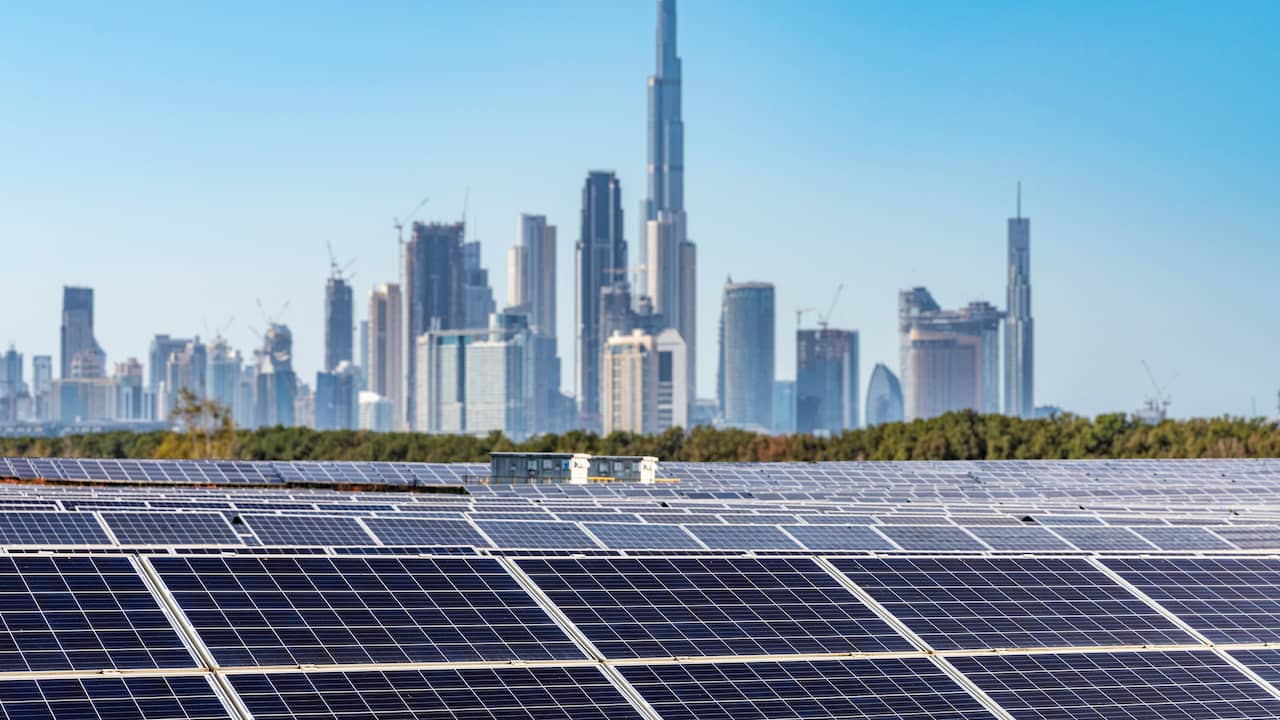Global statement on the phase-out of fossil fuels. It was previously believed that the European Union wanted to focus heavily on this matter at the upcoming climate summit in Dubai. But member states must first convince each other. It didn’t go well on Monday.
Climate ministers from the 27 European Union countries met in Luxembourg on Monday to agree a common path for the UN summit. It starts on November 30 in the UAE and lasts for two weeks.
There are concerns about the location upfront. The head of the climate summit is also the CEO of an oil company. However, it seems that the European Union wants to make a serious attempt in this 28th session of the UN climate negotiations to reach a joint statement with 198 countries on phasing out fossil fuels.
But a small problem emerged in Luxembourg on Monday: no agreement had been reached within the EU on a strong statement. It was already known that the Czech Republic, Hungary and Italy, among other countries, did not like it. Even after a day of negotiations, they made no concessions on Monday.
Previous attempts under pressure from oil-producing countries had failed
since then 1991 There is an attempt to emphasize in the final declaration of the climate summits that government support for coal, oil and gas contradicts the ambition to halt climate change.
Proposals for such a joint statement have always been dropped under pressure from oil-producing countries. Last year at the climate summit in Sharm El Sheikh, this happened under pressure from Saudi Arabia. The host country, Egypt, did not see any benefit in this at that time.
The closest the world came was two years ago at the climate summit in Glasgow. The modest achievement was that fossil fuels were mentioned for the first time in the final declaration.
On the last day, this text was significantly watered down under pressure from China and India. Instead of stopping the use of coal, it was “reduced.” In the section on phasing out fossil fuel subsidies, the word “ineffective” was added at the last minute: “phasing out ineffective fossil fuel subsidies.”
This word can be interpreted in different ways, which added a loophole to the agreement such that no significant change is necessary on the ground.
“Ending fossil investments would be a Glasgow breakthrough.”
The tough word for 2023: “Relentless”
As Wopke Hoekstra, the new European Commissioner for the Green Deal, testified last week that every word is weighed in such statements. The difficult word this time was:Relentlessly“, which can be better translated here as “without compensation”.
The call to phase out fossil fuels can therefore be interpreted more broadly. For example, fossil energy projects that capture part of their carbon dioxide emissions and put them underground could then be exempt.
Upon arriving in Luxembourg on Monday, Hoekstra was quick to clarify: It means a complete end to fossil fuels. According to Hoekstra, the use of underground CO2 storage should be limited to certain sectors that have no alternative.
However, it turns out to be a fixed word. Even after a day of negotiations, she returned “unabated.” Therefore, the European Union is making a softened appeal to the climate summit in Dubai.
Climate Minister Rob Gitten is not happy about it. On behalf of the Netherlands, he would have preferred to see a stronger statement. Although Gitten does not definitively rule out CO2 storage, under certain conditions: “There is also scope in the Netherlands for certain sectors to use CO2 storage. But the capacity is limited, so we have to be smart about it.”
Cetin does not want a tougher EU target at the moment
Cetin is not satisfied with the results of last year’s climate summit. “We, like the European Union, have been on the sidelines in Sharm El-Sheikh for a long time. Now we have to be at the center of the negotiations.”
The question then is what the topic should be. Discussions should also begin in Dubai on tightening emissions targets for all countries. The EU’s official target is to cut greenhouse gas emissions by 55 percent below 1990 levels by 2030. In practice, the European energy transition appears to be proceeding somewhat faster: the EU is now on track for 57 percent, as shown in the last year.
There have been calls for some time to adopt this higher percentage as an official climate target, thus tempting other countries to take an additional step. Cetin would prefer not to lose that ticket right away, as he said before the meeting: “Let’s hold on to that 55%. We can show the rest of the world that if you start with good policy you can achieve your own goal.” It can exceed.”
The EU climate target has been tightened slightly
However, on Monday evening, the tightening of the EU climate target was presented as a minor success: the word “at least” has now been added in front of it: emissions between 1990 and 2030 by 2030. at least Reduced 55 percent.
If all countries actually met their current climate goals, the world would warm by approximately 2.5 degrees. This was recently shown in a UN report that should serve as a basis for negotiations in Dubai. The report shows that the world is in much better shape than it was in 2010. It is just a snapshot: the trajectory of the global climate could improve further or worsen again.

Zombie specialist. Friendly twitter guru. Internet buff. Organizer. Coffee trailblazer. Lifelong problem solver. Certified travel enthusiast. Alcohol geek.

